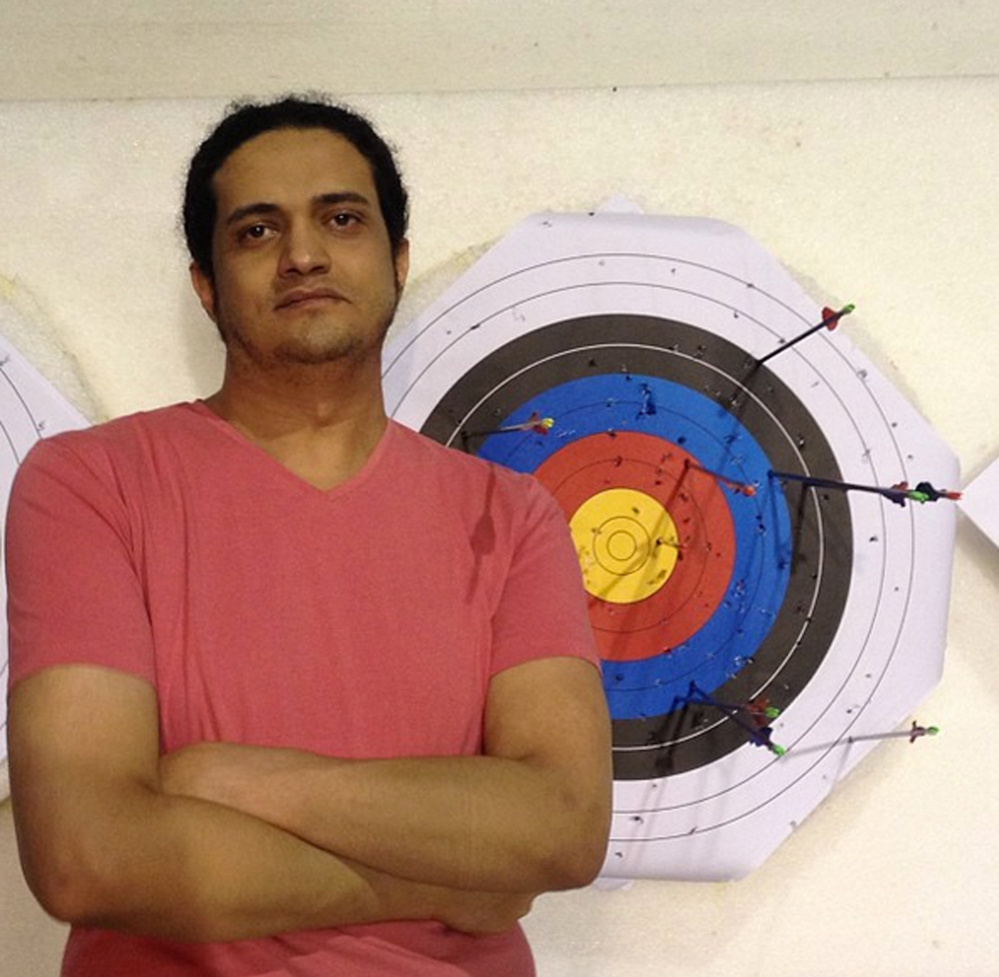RIYADH, Saudi Arabia — A Palestinian artist sentenced to death in Saudi Arabia for apostasy was quoted by a local news website Thursday as saying that he is not an atheist and that his case centers around a personal dispute he had with someone.
Ashraf Fayadh gave the interview to Mecca Online from a prison in Abha where he has been held since January 2014. He said a Saudi college student he knew filed a complaint to religious police accusing him of being an atheist and trying to spread atheism through a book of poetry he wrote.
Religious police detained Fayadh for a few hours after the complaint was filed and then released him, he said.
Fayadh said his poetry book was then sent to a council of clerics for their assessment of its content. The council deemed parts of the book atheistic. He said the Arabic book, called “Instructions Within,” was published in Lebanon in 2008 and has not been published in Saudi Arabia.
“I am not an atheist and it is impossible that I could be,” he said.
A Saudi court in Abha initially sentenced him to 800 lashes and four years in prison. He says his prison sentence was based on photos on his phone found by the religious police the night of his brief detention. He told Mecca Online the photos were of nothing more than of female colleagues he’d met through his participation in art exhibitions, which include the 2013 Venice Biennale.
Saudi courts adhere to an ultraconservative interpretation of Islamic law, and religious police strictly enforce the segregation of unmarried men and women. This has drawn comparisons to some of the ideologies underpinning the extremist Islamic State group.
The Saudi Justice Ministry plans to file a case against someone who wrote on Twitter that Fayadh’s ruling was “IS-like” in reference to the extremist group, Islamic State, sometimes known as ISIL or ISIS, a Saudi news website reported this week.
Fayadh said after the initial trial, an appeals court recommended blasphemy charges against him be stiffened and that he be sentenced to death. He said the appeals court also recommended rejecting defense testimony, citing the Palestinian artist’s own admission he wrote the book.
After one hearing, the lower court issued its death sentence in the retrial last week on blasphemy-related charges.
“The judgment against me was based on the testimony of this student,” Fayadh said. “The terminology I am condemned for is not even in the book, but the accusation against me was based on wrong interpretations for some of the poems.”
Fayadh plans to appeal the verdict. There are no known cases in recent years of executions for apostasy in Saudi Arabia.
Send questions/comments to the editors.



Success. Please wait for the page to reload. If the page does not reload within 5 seconds, please refresh the page.
Enter your email and password to access comments.
Hi, to comment on stories you must . This profile is in addition to your subscription and website login.
Already have a commenting profile? .
Invalid username/password.
Please check your email to confirm and complete your registration.
Only subscribers are eligible to post comments. Please subscribe or login first for digital access. Here’s why.
Use the form below to reset your password. When you've submitted your account email, we will send an email with a reset code.